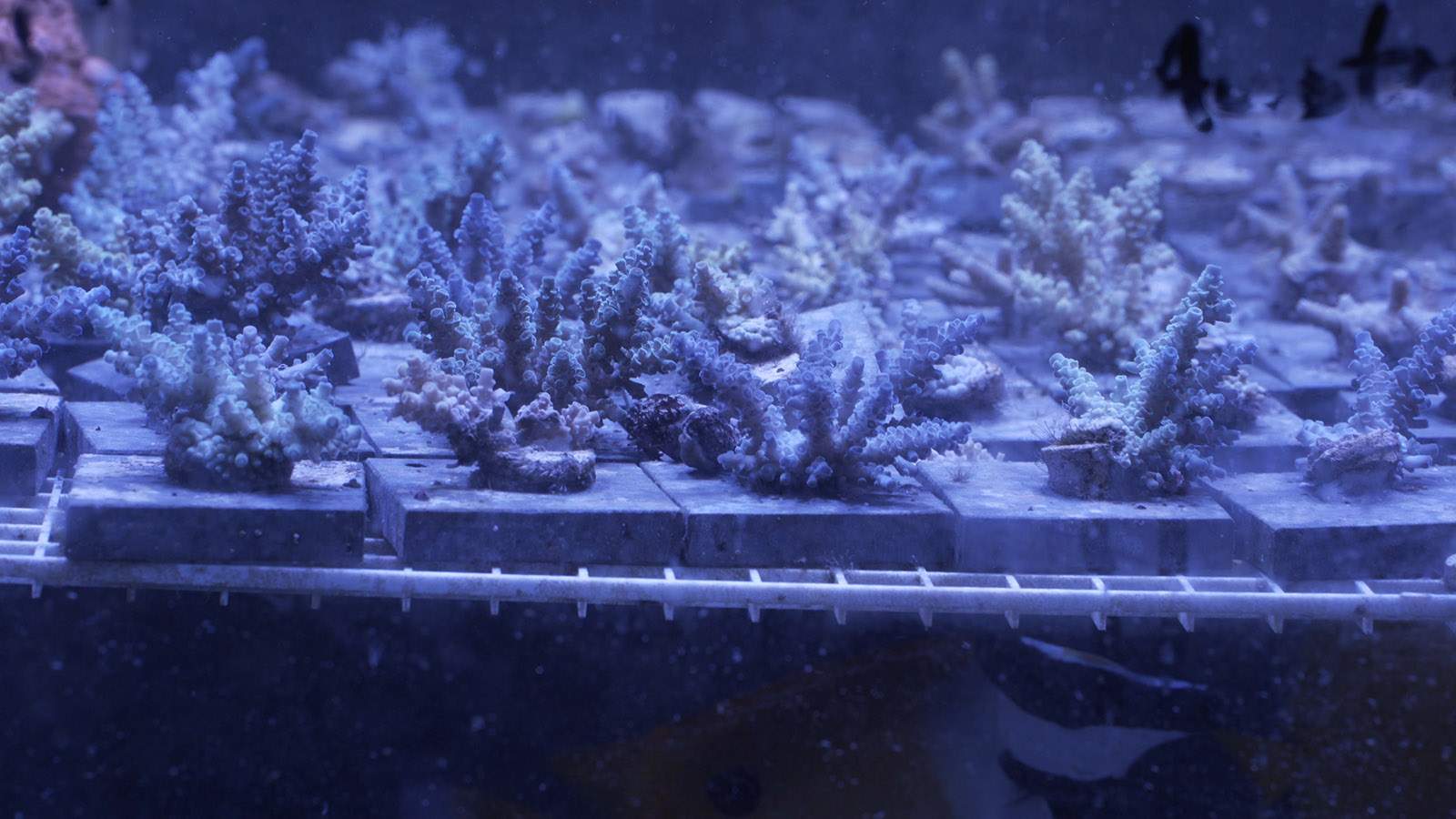 Sonia Levy, For the Love of Corals (2018), video still
Sonia Levy, For the Love of Corals (2018), video still
We are the watery world – metonymically, temporarily, partially, and particularly. Water irrigates us, sustains us, comprises the bulk of our soupy flesh. Yet it isn’t easy to begin with a ‘we.’ In feminist political terms, this ‘we’ goes against much feminist labour to insist on difference. As bodies of water, we live our wateriness always within specific currents of privilege, dispossession and power which seek to choreograph our movements through the watery world. But as bodies of water, we also puddle and pool. We seek confluence. We leak, we flow. We owe our own bodies of water to others, in both dribbles and deluges. Our bodies of water are different – in their physical properties and hybridizations, as well as in political, cultural, and historical terms – but our differentiation is always a collective worlding.
– Astrida Neimanis, 2018
Astrida Neimanis is a Lecturer in the Department of Gender and Cultural Studies at the University of Sydney and a Key Researcher with the Sydney Environment Institute. She is Associate Editor of the journal Environmental Humanities (Duke UP) as well as Co-Founder of the Environmental Humanities Collaboratory at Linkoping University (SE) and an Affiliated Researcher at LiU's Posthumanities Hub (TEMA Gender). She is also Immediate Past President of the Association for Literature, Environment and Culture in Canada (alecc.ca). Her research interests include posthuman feminisms, experimental writing methods, nature/culture, water, climate change, environmental humanities, environmental justice, embodiment, (bio)coloniality, biotechnologies and feminist STS. In particular, she is interested in the common and queer intersections of these things.
 Sonia Levy, For the Love of Corals (2018), video still
Sonia Levy, For the Love of Corals (2018), video still